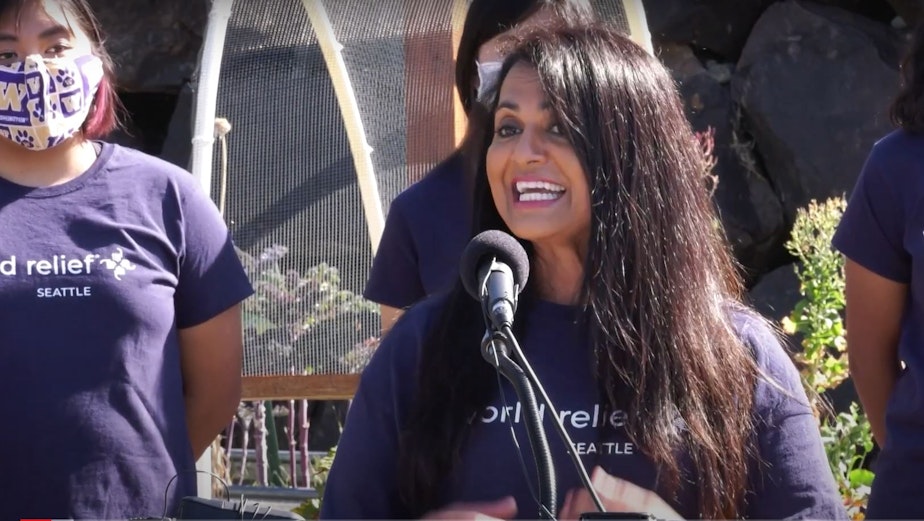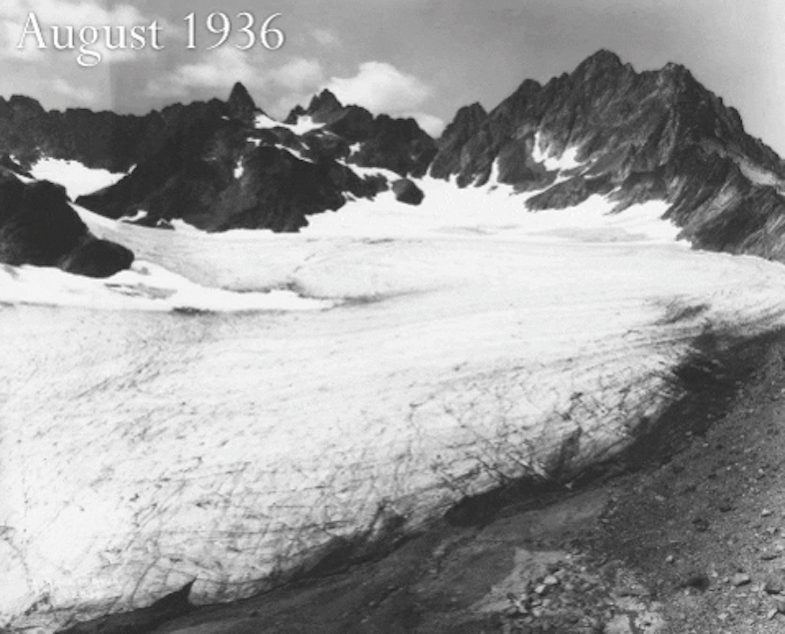U.S. out of global climate pact — an 'appalling' move, WA leaders say

While a final result in the U.S. presidential election remains up in the air, President Donald Trump did get a big political win this week: On Wednesday, the United States became the first nation to pull out of the 2015 Paris climate accord, completing a process Trump began last year.
Seattle Mayor Jenny Durkan called the move “appalling,” while Washington state Gov. Jay Inslee said Trump has abandoned America’s role as a world leader.
“Every other country in the world has made a commitment to act on climate change,” Inslee said. “Our children need our leadership, and our economy needs clean energy jobs.”
“We have to work together,” said Tahmina Martelly with World Relief Seattle. “I mean, we have this one planet, and it's so short-sighted to be one of the largest nations and decide to pull out of that.”
Martelly’s organization helps newly arrived refugees from war or persecution resettle in the Seattle area.
Martelly said she’s also started seeing people driven from their homelands by a climate turned hostile, as rising seas turn coastal farmland to salt, and heat extremes wither crops.
Sponsored
“We're going to see more and more people not being able to inhabit places directly as a result of climate change,” she said.
Leonard Forsman, president of Affiliated Tribes of Northwest Indians and tribal chairman of the Suquamish, called the withdrawal from the climate treaty “extremely disappointing.”
“We're really concerned about the crab and clams and oysters and all those things that are extremely important to our way of life,” he said. "We depend on those heavily, especially with the loss of a lot of salmon runs."
Forsman said the Suquamish and other tribes have been able, in the Trump era, to maintain their federal funding for programs to study and prepare for the disruptions our altered climate has started to bring.
“Although we've been able to kind of keep things going at home, we need to have that international cooperation as well,” he said.
Sponsored

It was a coincidence that the U.S. pulled out of the Paris accord one day after the presidential election.
President Trump had announced in 2017 that he would leave the “very unfair” Paris accords and "put America and its workers first."
Though the treaty is completely voluntary and relies on international peer pressure, Trump said the treaty “hamstrings” the U.S. economy.
The treaty’s rules allowed nations to apply to withdraw no sooner than Nov. 4, 2019, which the Trump administration did, with the divorce becoming final in one year.
Sponsored
Democratic challenger Joe Biden said he’d quickly rejoin the Paris accord if he wins. To do so, he would have to notify the United Nations and submit a new plan for emission reductions. Within 30 days, the nation would be party to the treaty again.
Greenhouse gas emissions in the U.S. fell 2% last year, after rising 3% in 2018, according to estimates by the Rhodium Group. The fall was almost entirely due to reduced coal use, which the Trump administration has been trying in vain to boost as coal fails to compete with cheaper energy sources.
After four years of the Trump administration blocking federal climate action, the U.S. has fallen far behind its promises under the Paris accord: To cut its greenhouse gas emissions 26 to 28% below 2005 levels by 2025.
Climate scientists say much steeper reductions — and unprecedented changes in all aspects of society — are needed to keep the planet from heating a disastrous 2 degrees Celsius or more.
Years of unfettered pollution leave the U.S. with a lot of catching up to do.
Sponsored
Making up for lost time could be especially difficult if the Republican Party, which has shown little interest in regulating greenhouse gas emissions, maintains control of the U.S. Senate.
Sponsored
“Participation in the Paris climate accord didn’t stop Washington state from missing its own climate targets,” said Todd Myers with the free-market Washington Policy Center in an email. “If we can’t meet our own targets locally, an unenforceable, international treaty isn’t going to make a difference.”
Since Jay Inslee became governor in 2012, the state’s carbon emissions have gone up 6%, despite a 2007 state law requiring emission reductions by 2020.
The city of Seattle has also been missing its emission targets, despite claiming for 19 years to be a national leader on the problem.
The city’s Green New Deal, passed in August 2019, commits to eliminating Seattle’s carbon emissions in a decade, but most of its initiatives have been put on hold since the Covid-19 pandemic began.
“Until we live up to our own rhetoric, pointing fingers elsewhere is just a distraction,” Myers said.
Sponsored
Inslee said on Wednesday that he would push for action to slash pollution from transportation, the state’s leading climate polluter, in the upcoming legislative session. His past efforts to tame pollution from cars and trucks have died in the state Senate.
Crosscut reports that early election results in the Democrat-controlled state Senate show the body likely shifting from moderate to progressive Democrats, giving climate policies a stronger chance of passing.
While there has been speculation that Inslee might be offered an environmental position in a Biden administration, Inslee said Wednesday afternoon he has not spoken with Biden since Election Day.




